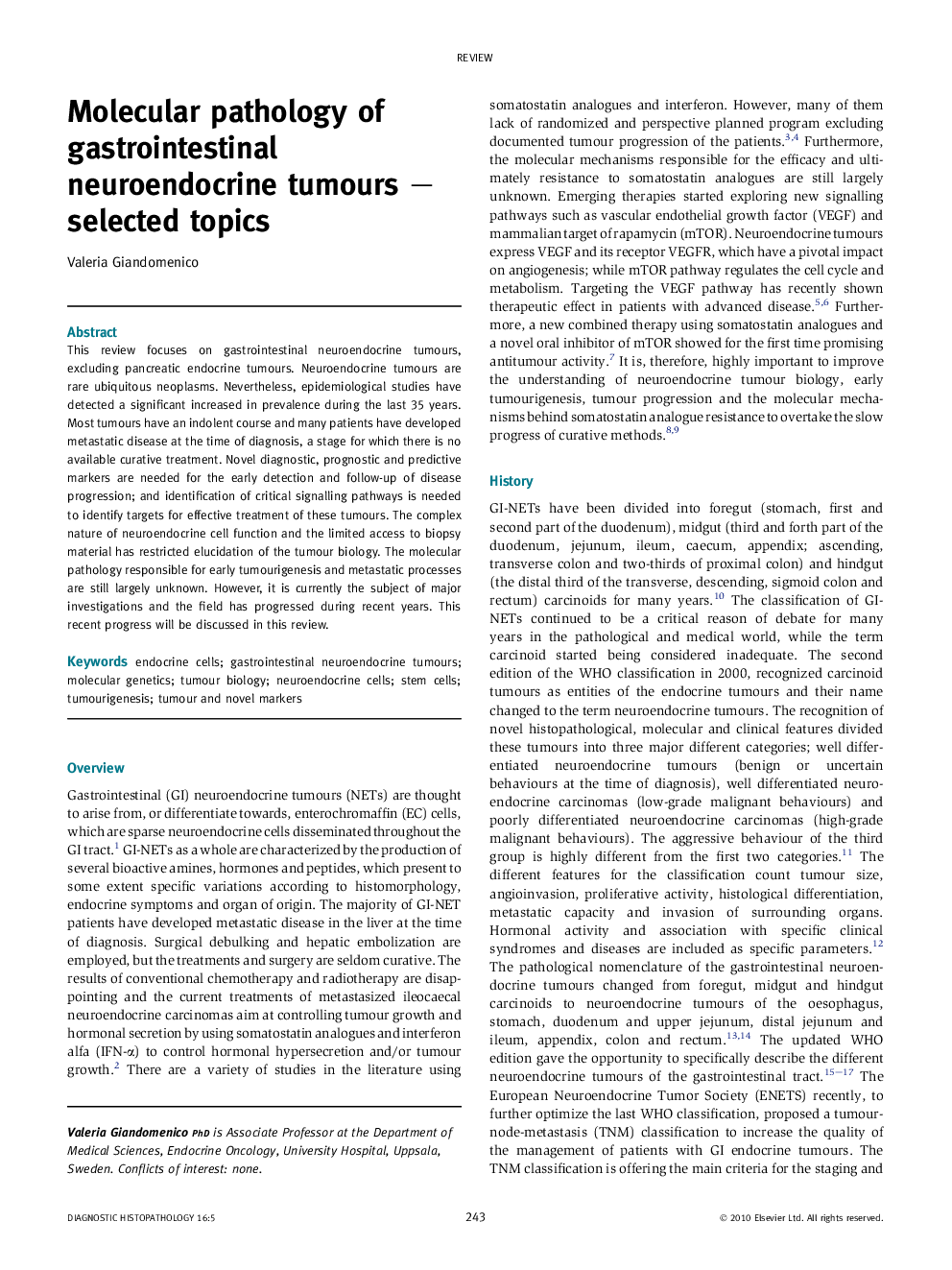| Article ID | Journal | Published Year | Pages | File Type |
|---|---|---|---|---|
| 4131302 | Diagnostic Histopathology | 2010 | 8 Pages |
This review focuses on gastrointestinal neuroendocrine tumours, excluding pancreatic endocrine tumours. Neuroendocrine tumours are rare ubiquitous neoplasms. Nevertheless, epidemiological studies have detected a significant increased in prevalence during the last 35 years. Most tumours have an indolent course and many patients have developed metastatic disease at the time of diagnosis, a stage for which there is no available curative treatment. Novel diagnostic, prognostic and predictive markers are needed for the early detection and follow-up of disease progression; and identification of critical signalling pathways is needed to identify targets for effective treatment of these tumours. The complex nature of neuroendocrine cell function and the limited access to biopsy material has restricted elucidation of the tumour biology. The molecular pathology responsible for early tumourigenesis and metastatic processes are still largely unknown. However, it is currently the subject of major investigations and the field has progressed during recent years. This recent progress will be discussed in this review.
